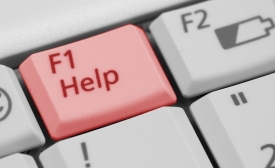Digital Diplomacy & New Technology

An online adventure publication looks at old destinations with new eyes.

A new report from the U.S. Advisory Commission on Public Diplomacy examines how digital technology has changed the face of PD.
Online clips —both geared for external and domestic consumption — has become a popular means for China to promote its policies and its perspective on issues, as part of its still fledgling, and often ham-fisted, soft power. Previous attempts have included aggressively nationalistic rap and cute, catchy tunes about its five-year plan.
Any peaceful resolution of the Israeli-Palestinian conflict will require dialogue, mutual trust, and understanding between Israelis and Palestinians. The "Palestine in Hebrew" Facebook channel demonstrates that the Palestinian government in the West Bank is attempting to foster such dialogue and understating with Israeli citizens. While the profile is but one element in a larger Palestinian outreach initiative, it exemplifies how digital tools, and social media, can be used by governments to overcome the limitations of traditional diplomacy and practice public diplomacy.
Using emojis to help shape the nation's image is a playful, but not frivolous approach to foreign policy. Finland is a highly educated country where tech is an important industry. The selection of emojis appears to be a way to highlight Finland's values and Arctic presence, while also demonstrating its tech expertise.
Addressing a session titled ‘Diplomacy and the Power of Communication’ on the second and final day of the Arab Media Forum 2017, Buangan said diplomacy and conversation are powerful tools for creating concrete and tangible results in developing mutual understanding among people and governments. Talking about new developments in the media, Buangan said media has evolved and became more global in engagement with the society.

Can Twitter be a game changer for rebel groups?







